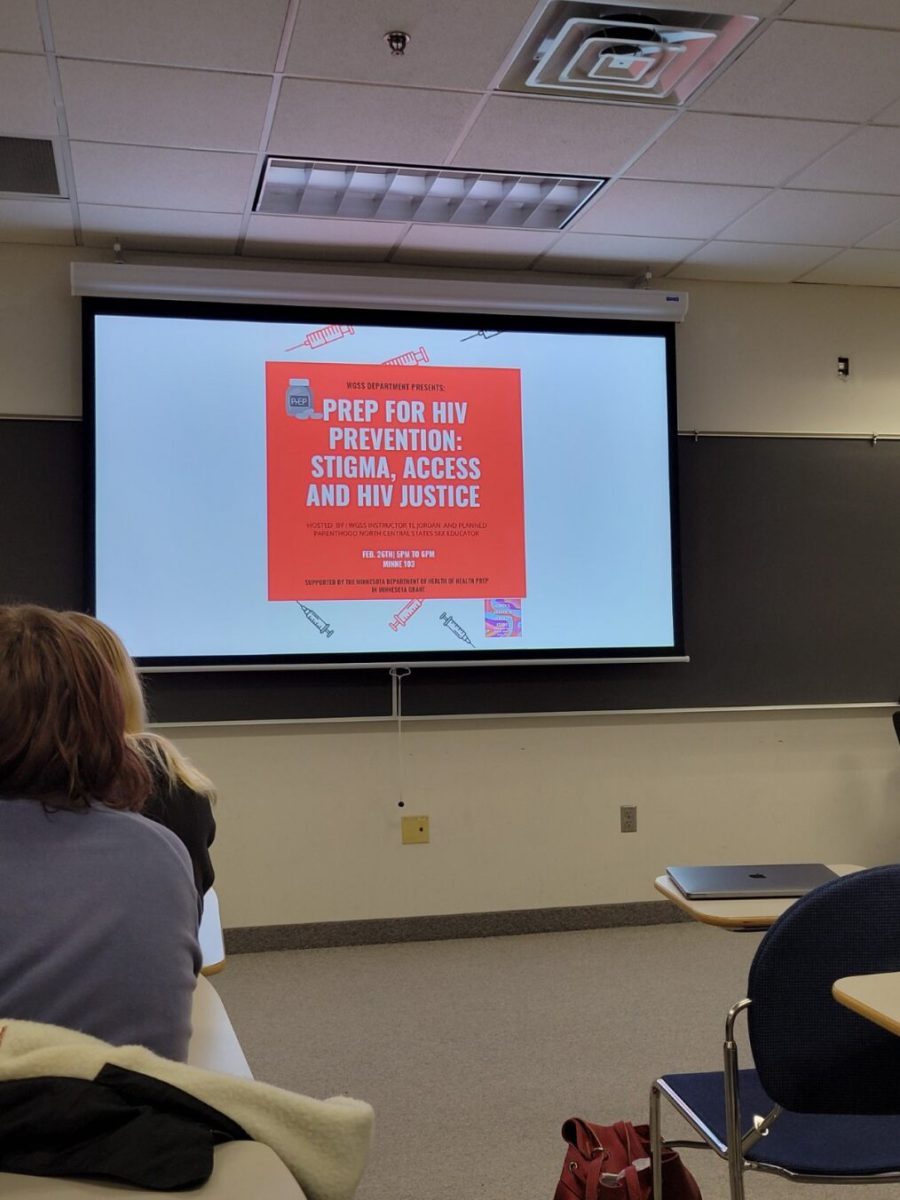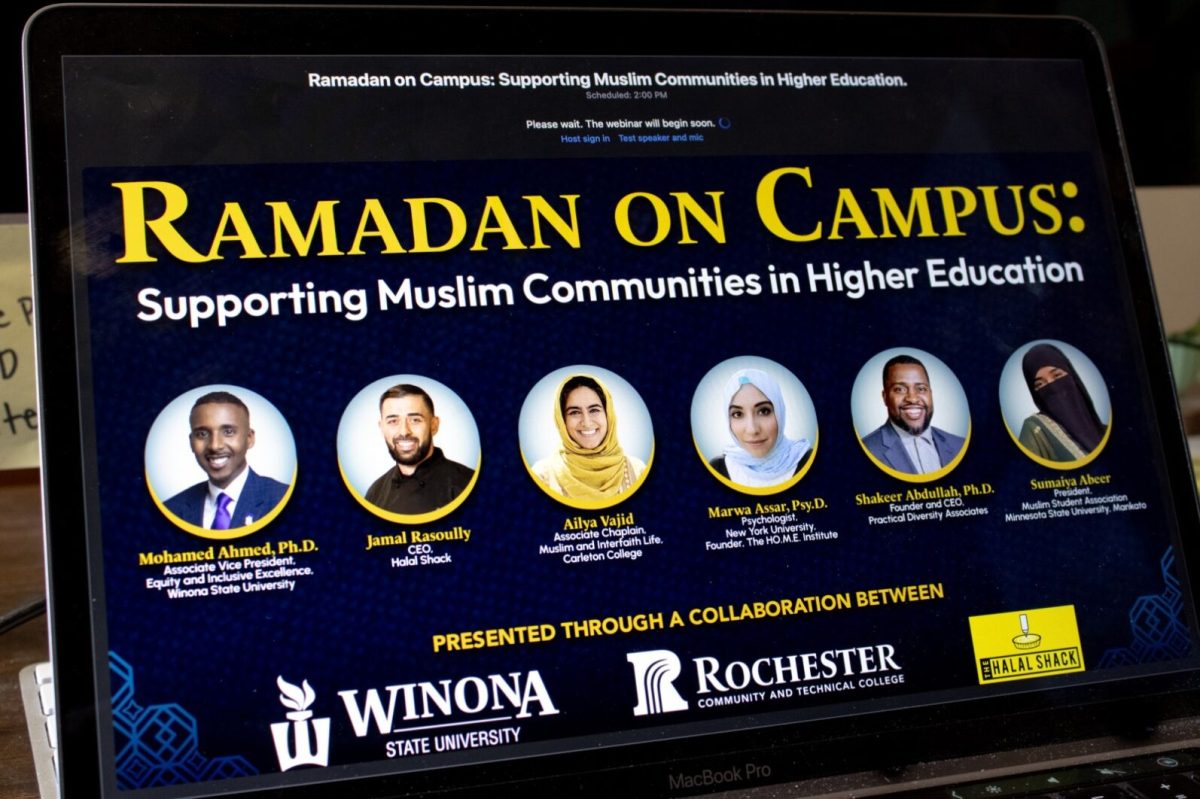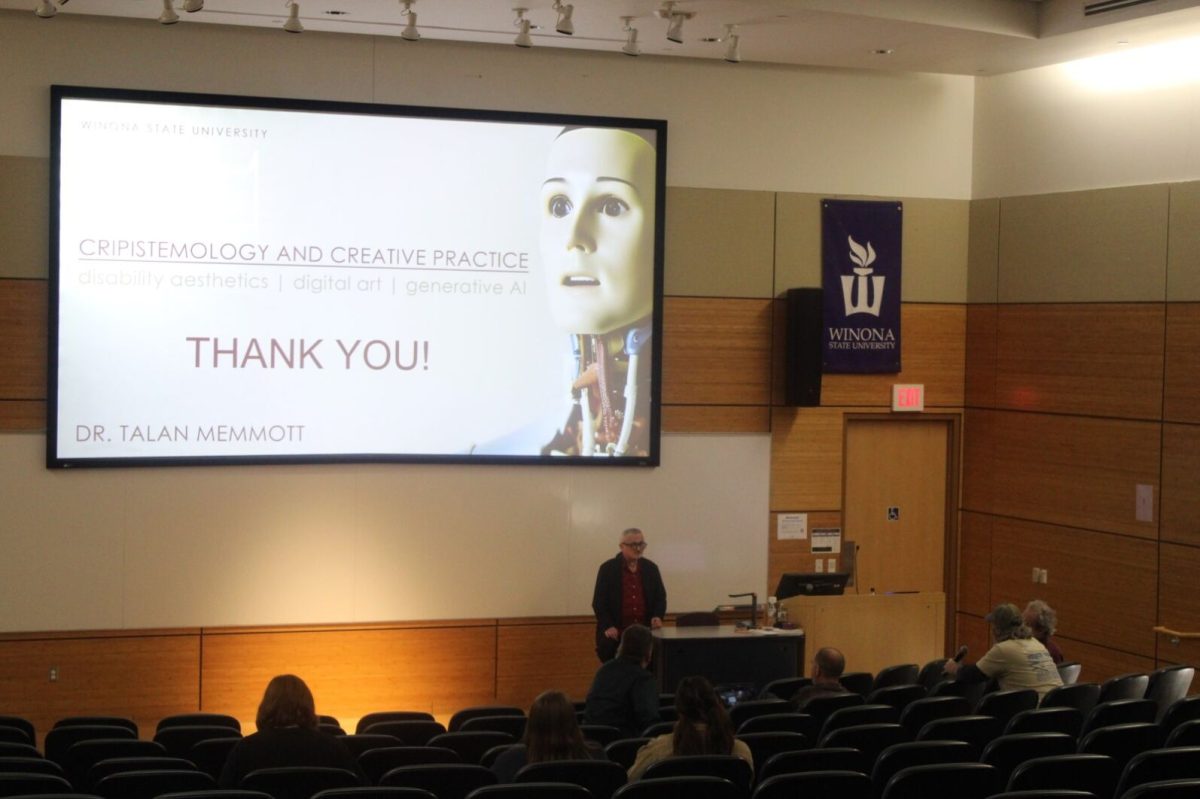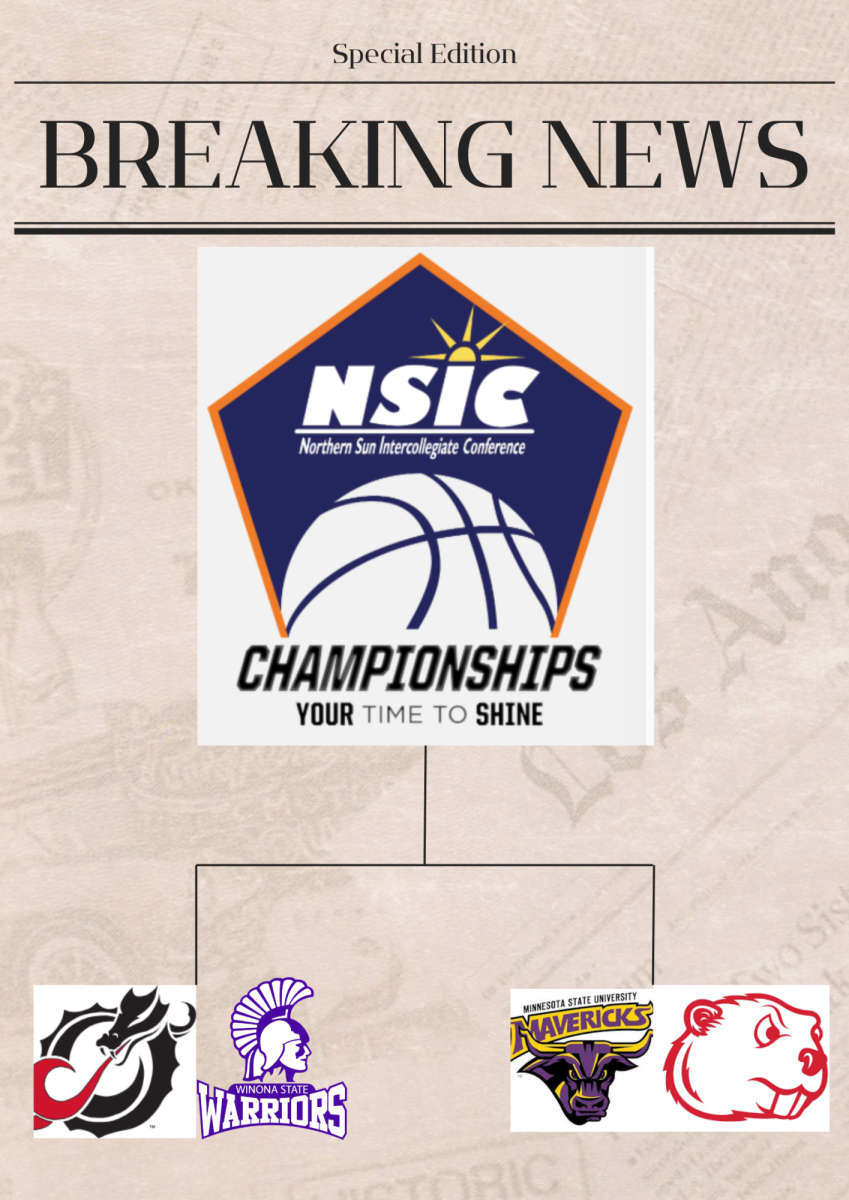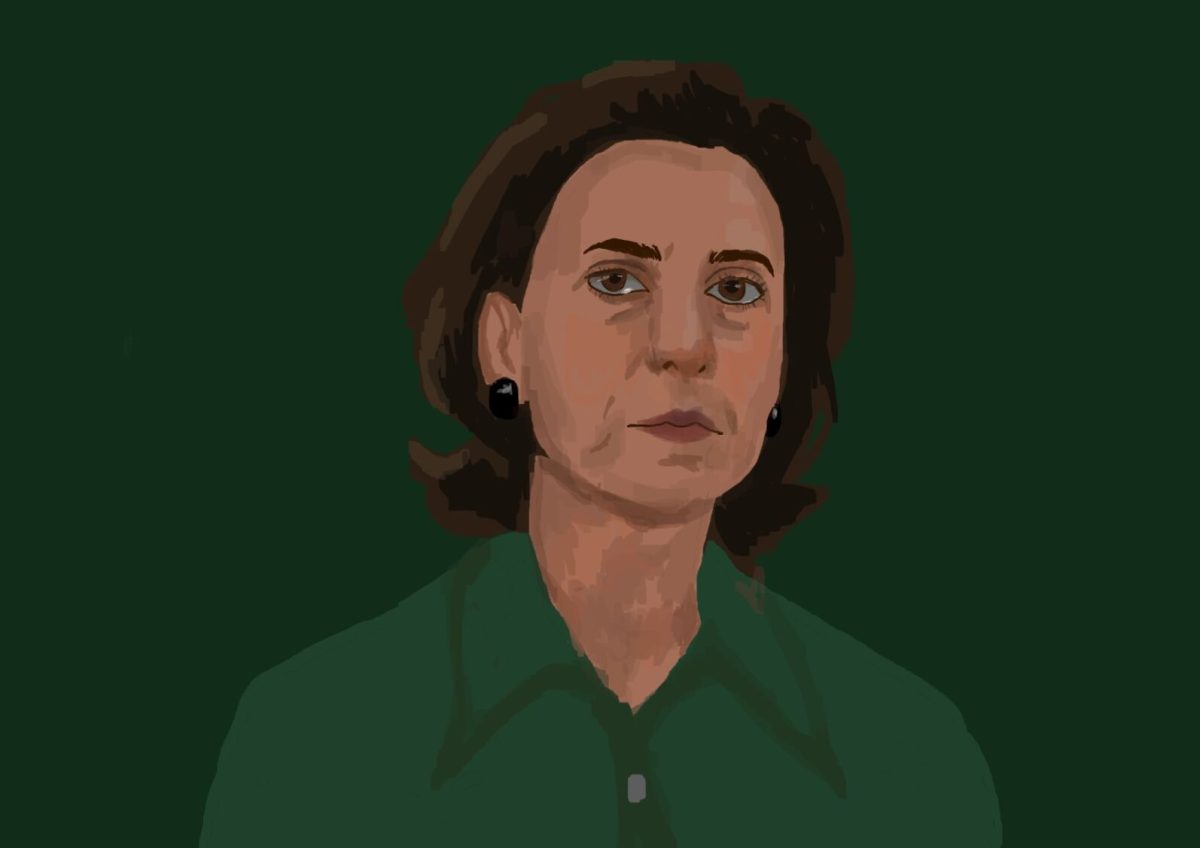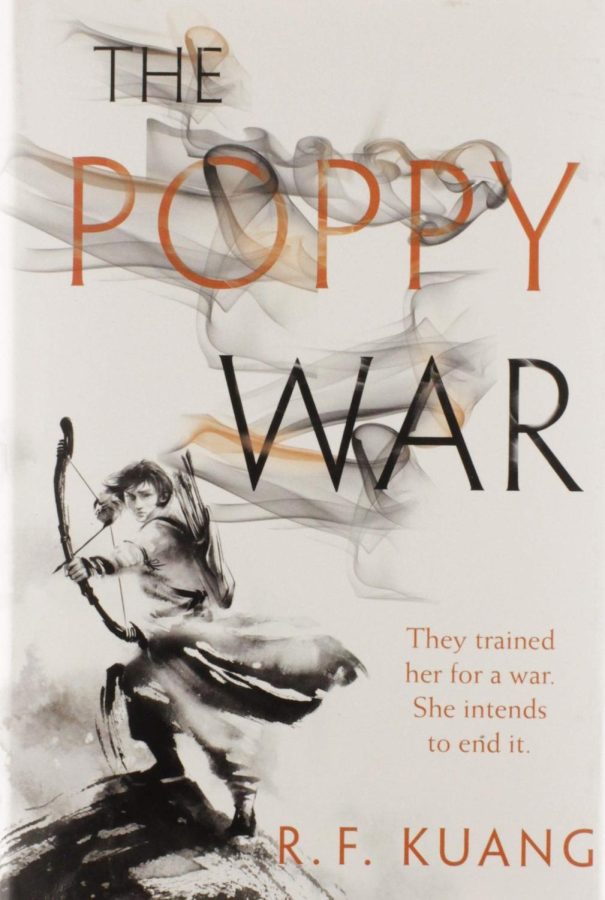Book in Review: “The Poppy War”
April 6, 2022
This might be considered sacrilege by BookTok, book clubs and avid readers alike, but I’m going to be honest: I’m tired of reading romance novels. I’ve been craving a story that’s genuine, clever and preferably led by a female character whose development isn’t wholly dependent on choosing between the sexy bad boy or the sweet boy-next-door type.
I set out on a mission to Barnes & Noble, fueled by boba and sheer willpower, and I had nearly lost hope amid the sea of cheesy romances and self-serving autobiographies when “The Poppy War” by R. F. Kuang caught my eye. I scarcely dared to hope it would be what I was looking for, but the blurb on the back cover did not once mention enchanting sea-green orbs or a girl who “wasn’t like the others.” So, despite the intimidating page count, I bought myself a paperback copy and set to reading.
“The Poppy War” is a fantasy novel that takes place in the Nikara Empire, a large continent whose inhabitants, history and sociopolitical structures are based on East Asian cultures. Nikara is broken into twelve districts, each headed by a warlord under the nebulous rule of the Empress. There is much internal conflict between the warlords in addition to the threat of invasion from the Federation of Mugen, an island teeming with nationalistic soldiers who wish to expand their empire onto the sprawling land of Nikara.
After barely succeeding to fend off the Federation in the Second Poppy War, the Nikara Empire scrambles to assemble the next generation of leaders and war generals who will be responsible for defending the nation. They pour their resources into military academies where students can only be admitted once they pass the Keju, a rigorous twelve-hour exam that tests for extensive knowledge on all subjects the Empire deems necessary.
Rin, a disadvantaged war orphan, is determined to pass the Keju to get into Sinegard, the most prestigious military academy in Nikara. Despite being forced to run drugs and provide free labor for her cruel foster family, Rin studies intensively to the point of exhaustion. Even though she’s up against rich kids who never have to lift a finger and have access to private tutors, she scores the highest on the Keju and begins her journey to the North, where she’ll train with the best of the best to become a skilled strategist and crafty warrior.
The Keju, however, was the least of her struggles. Rin deals with racism, sexism and classism during her time at Sinegard, and with political tensions rising, she has to navigate a world that is constantly shifting be- neath her feet. There is so much to unpack about the book that I feel as though I’m not doing it any justice with this summary. Many literary critics laud Ernest Hemingway for his ability to parse his language and pack vast meaning into few words, but in my opinion, Hemingway has nothing on Kuang. Kuang includes elements of fantasy and spirituality and ancestry in this story as well, which Rin taps into to connect back to her shaman ancestors.
Throughout the entire book, I was truly on the edge of my seat, equal parts anxious and excited to turn the page and unfold the next phase of the story. The plot is fast-moving and complex, but Kuang is such a masterful writer that I was never confused or lost. I was astounded by all the layers in the novel. As a college student myself, I found Rin’s intense ambition and obsessive perfectionism to be relatable, and when she was doubted at every turn, scorned by her classmates and instructors alike for her gender, race and social class, I was personally angered by it—almost as if they were taking jabs at me or a close friend.
Rin is a character that everyone wants to root for because she is relatable to a wide audience: people of color, women, disadvantaged folks, or anyone who has ever been told they can’t do something because it’s beyond their sphere.
“The Poppy War” sated my appetite and more. I thoroughly enjoyed how Kuang doesn’t lead readers to a definite conclusion about what is right or wrong, she only shows the characters doing the best with what they have and allows the reader to ponder the morality of their choices Perhaps there is no right or wrong, no predestined path or freedom of choice. You can decide for yourself if you pick up a copy of “The Poppy War,” or you can slightly lose your mind trying, which I may or may not be doing as I write this. Don’t let that scare you off, though, be- cause seriously, who wants to read a book that doesn’t drive them at least a little insane by the end?

